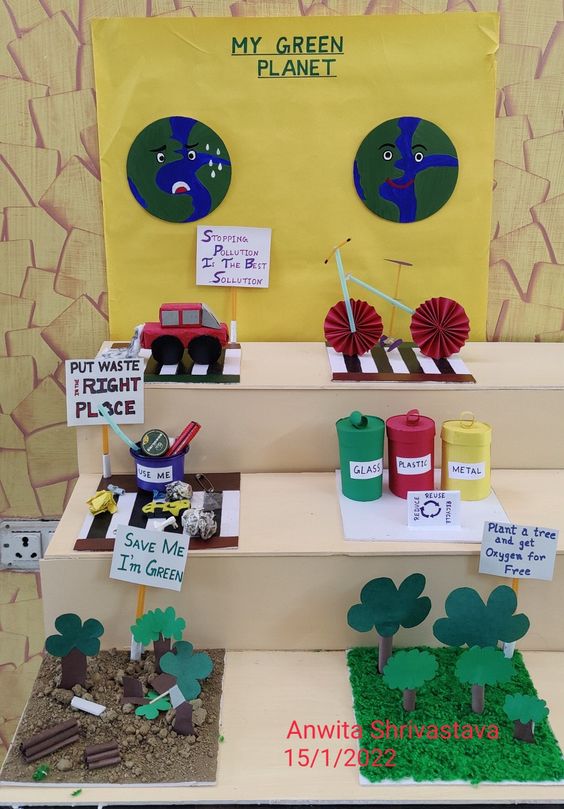Cardboard or foam board (for the base of the model)
Construction paper (various colors)
Scissors
Glue or tape
Markers, colored pencils, or crayons
Small boxes or containers (for recycling bins)
Craft sticks or paper rolls (for trees)
Recyclable materials (bottle caps, paper towel rolls, etc.)
Optional: small toy cars, clay, or other craft supplies for additional details
Introduction (10 minutes):
Discuss the importance of keeping the Earth green and the various methods to achieve this, such as recycling, planting trees, and using alternative transportation.
Introduce the activity: students will create a 3D model demonstrating how to keep the Earth green using handmade crafts.
Planning and Designing (15 minutes):
Brainstorm with students the different elements they want to include in their model. These might include recycling bins, trees (showing oxygen production), and alternative transportation like bicycles.
Draw a rough sketch of the model to plan the layout and placement of each element.
Creating the Crafts (30 minutes):
Recycling Bins: Use small boxes or containers covered with colored paper. Label them for different types of recycling (e.g., paper, plastic, glass).
Trees: Use craft sticks or paper rolls to create tree trunks. Attach green paper or fabric for the leaves and decorate to represent trees that give oxygen.
Alternative Transportation: Craft small bicycles or other non-fuel vehicles from paper, cardboard, or clay. Show these alongside or in place of toy cars.
Additional Elements: Create any other relevant items such as compost bins or solar panels.
Assembling the Model (20 minutes):
Provide each student or group with a base (cardboard or foam board) and assist them in arranging their crafts according to their design.
Secure each craft item to the base using glue or tape. Ensure the model is stable and all elements are clearly visible.
Presentation (15 minutes):
Have students present their models to the class, explaining each element and its role in keeping the Earth green.
Encourage questions and discussions about the different practices represented in the models.
Reflection (10 minutes):
Reflect on the activity by discussing what students learned about eco-friendly practices and how their models represent these methods.
Discuss ways students can apply these practices in their daily lives to help the environment.

